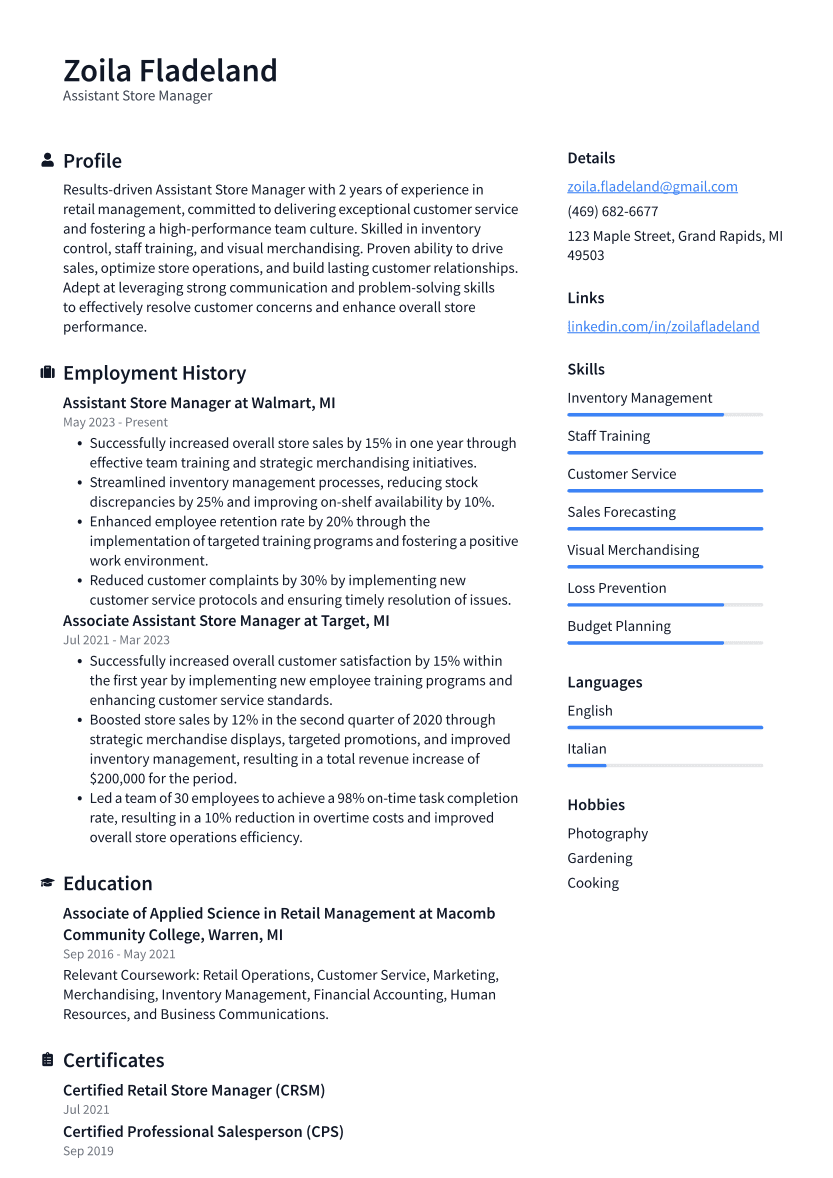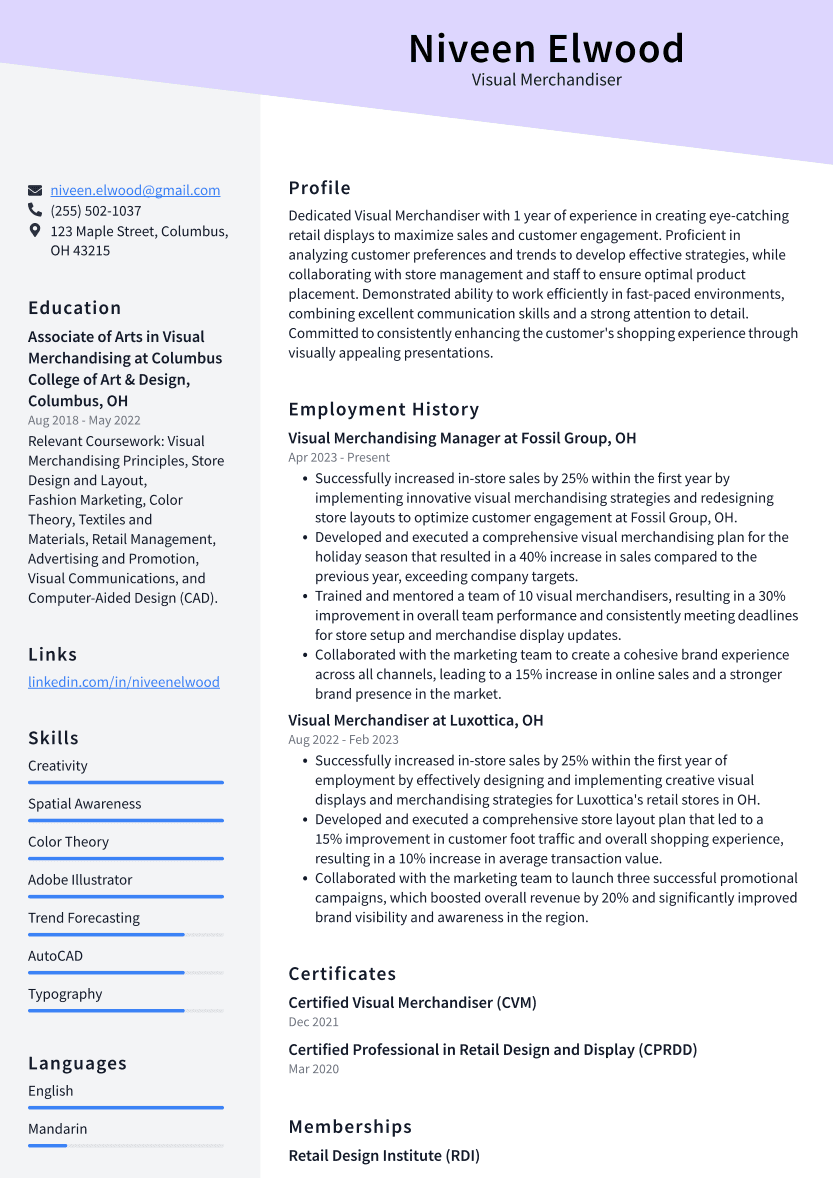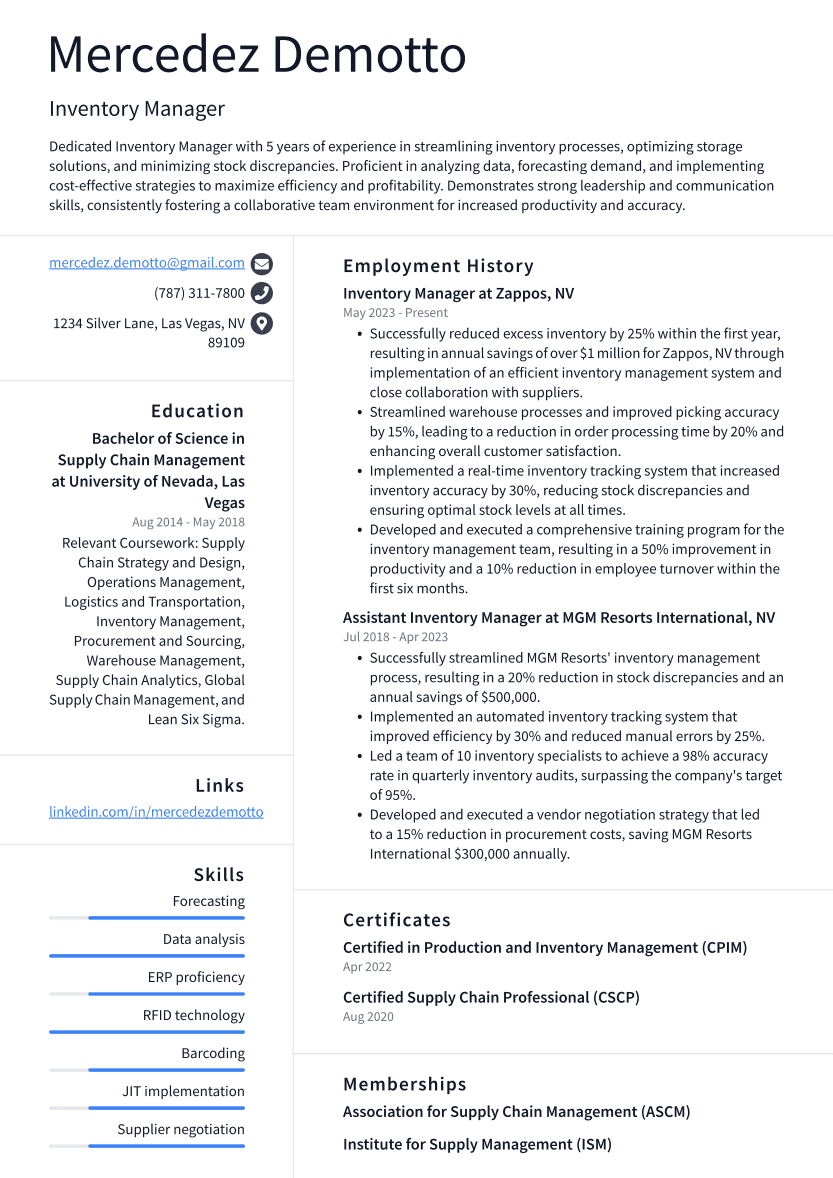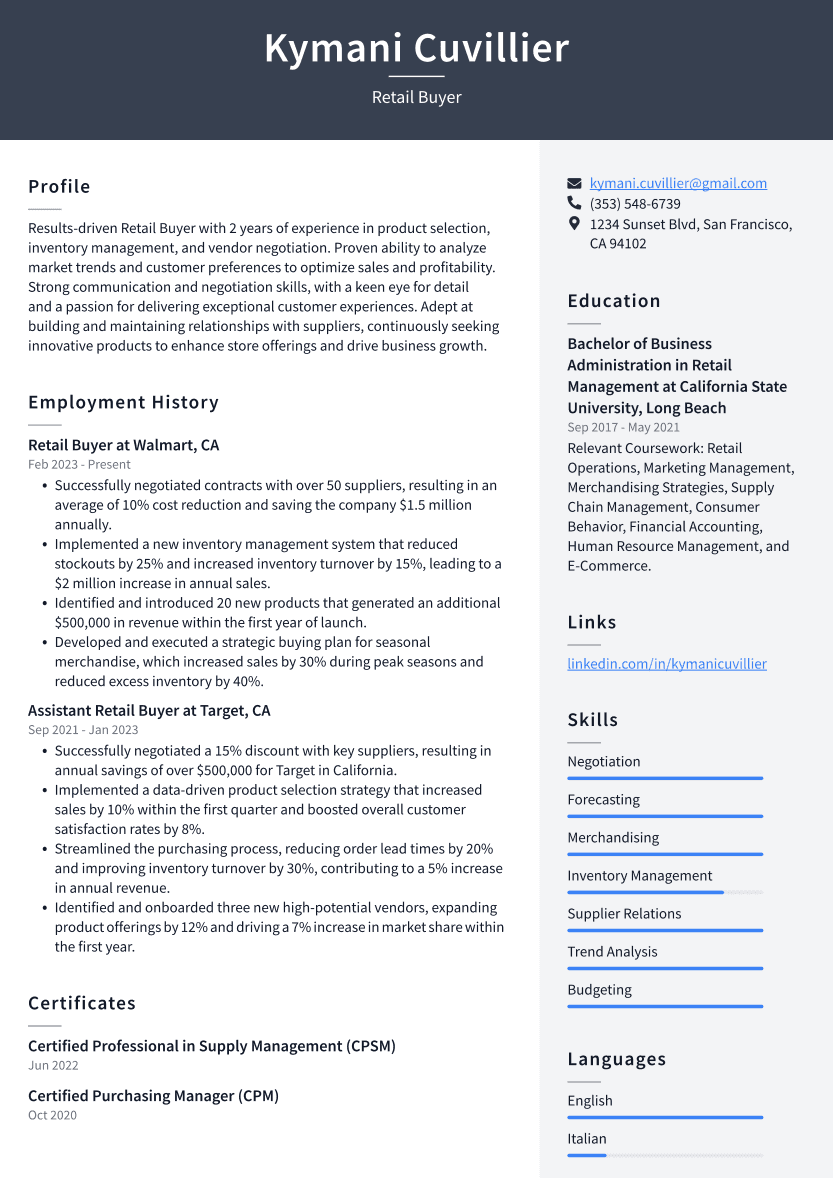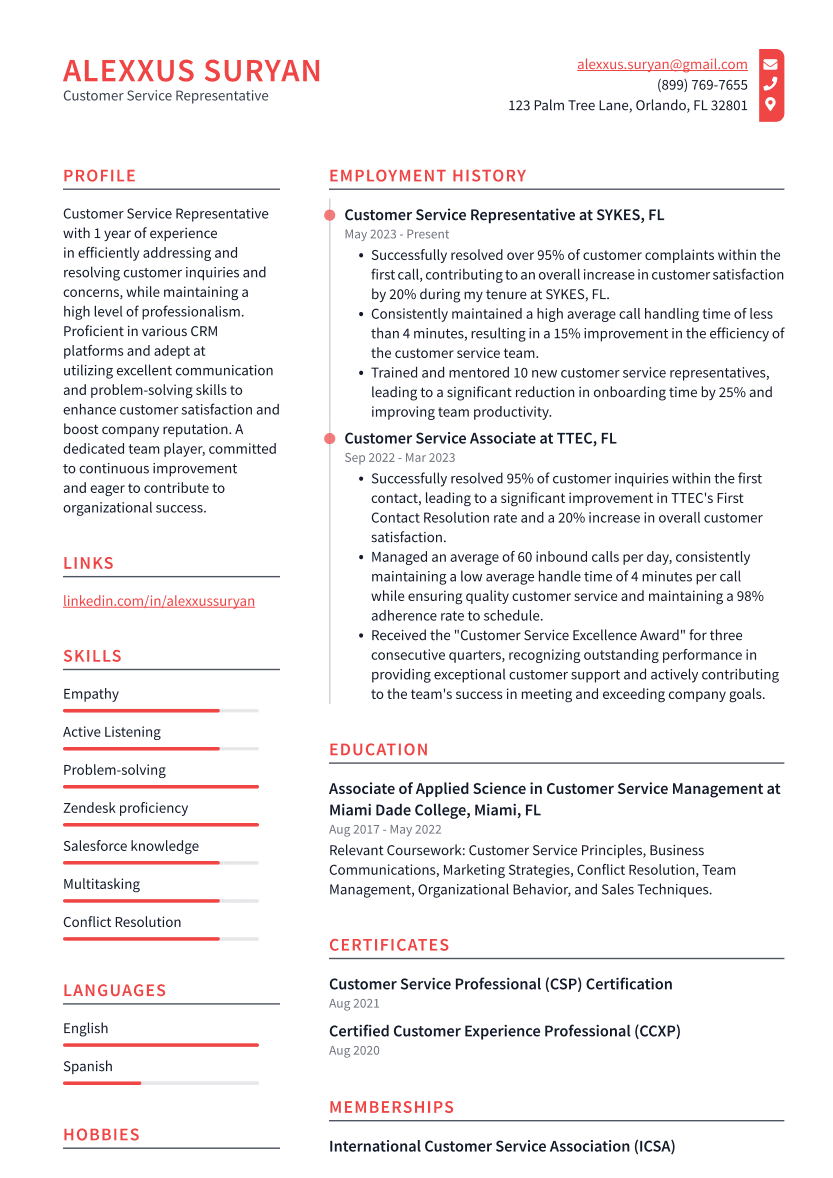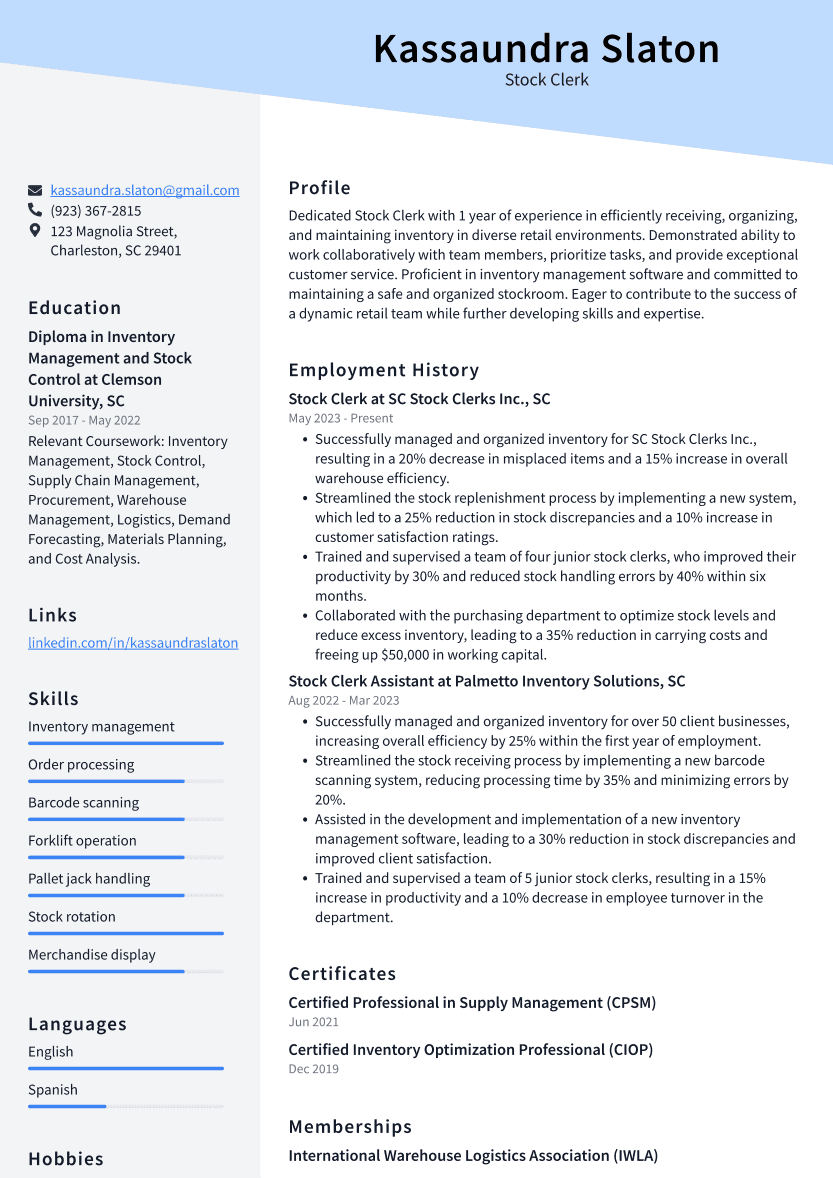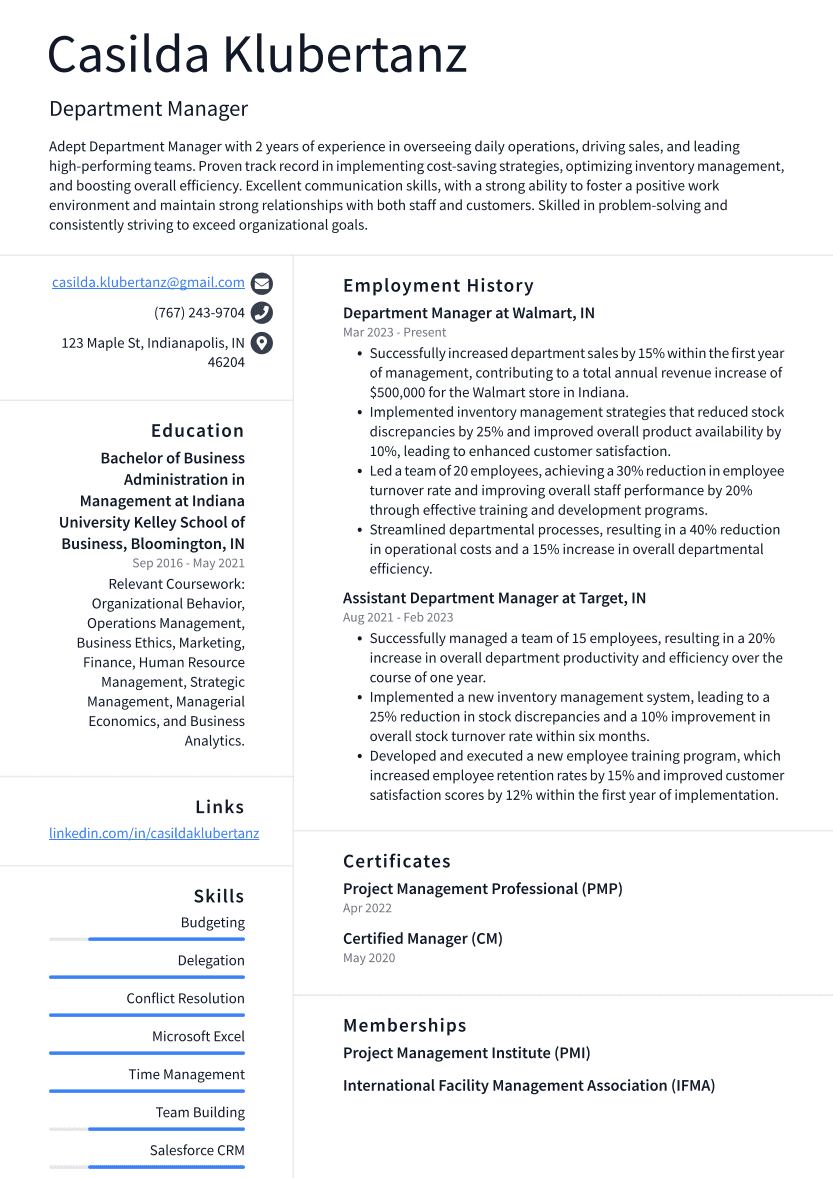12 Professional Examples
Retail Resume Examples
Closing the deal on a new job starts with closing the deal on your resume. If you are looking for inspiration, our sample resumes are what you need. Consider them as blueprints to help build your own perfect retail resume.




